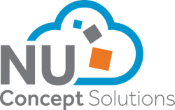NU Concept Blogs

Tech Roles in 2026: Skills, salaries, and how to future-proof your career
Without a crystal ball, predicting exactly what tech roles will look like in 2026 is near impossible, but one thing is clear; the demand for AI, cloud computing, ERP, and data analytics skills is set to keep growing.
Tech jobs 2026
The tech landscape moves fast. 2026 promises to bring new opportunities, higher salaries, and in-demand roles for those prepared to adapt. From AI architects to cloud specialists and ERP consultants, employers increasingly value candidates who can bridge technical expertise with practical business solutions.
High-growth tech roles
Roles such as AI specialists, cybersecurity professionals, cloud engineers, and data analysts are expected to remain highly sought after. Candidates with strong experience, transferable skills, and relevant certifications will have a competitive edge. Those willing to upskill in emerging areas will see the most career growth.
Our 2026 tech job predictions
Based on reports from government skills agencies, trade bodies, and our clients, we believe the following roles and specialisms are projected to see the highest sustained growth in the UK next year.
Programmers and software development professionals
These roles are foundational to all digital transformation. Programmers and software development professionals are projected to have one of the largest individual occupational increases in employment demand between now and 2030. According to Skills England analysis in their Assessment of priority skills to 2030 report, published in August 2025, there will be an estimated 87,000 new positions. This figure represents the second-highest projected increase for any single occupation, underscoring the vital nature of software roles to the UK economy. Core skills include:
- Python
- Java
- Rust
- Secure coding
- DevOps
Cloud computing architects and engineers
The cloud market is in a mature yet expanding phase. Continued migration of legacy IT to scalable cloud platforms still drives the need for skilled infrastructure experts. The move to cloud-native architectures has an impact on skills. Skillsets needed are now more specialised, emphasising automation, security, and next-generation tech. Core skills needed include:
- Multi-cloud knowledge including Amazon Web Services (AWS), Microsoft Azure, and Google Cloud Platform (GCP)
- Infrastructure as Code (IaC)
- Terraform
AI/machine learning engineers and data scientists
This is all thanks to the fast acceleration of AI adoption across all industries and significant government investment in R&D. Core skills needed include:
- Generative AI models (e.g., LLMs)
- MLOps
- Advanced statistics
- Python
Cybersecurity analysts and engineers
In our connected digital age, cybersecurity has become a major risk factor for organisations. AI-powered cyber threats are increasingly sophisticated, and there is a heightened board-level focus on digital risk. Next year will undoubtedly bring new cybersecurity threats and challenges to the table. Core skills include:
- Cloud security (AWS/Azure)
- Ethical hacking
- Threat detection
- Governance, risk, and compliance (GRC)
IT business analysts, architects and systems designers
The need to design, integrate, and manage complex cloud and enterprise systems during large-scale digital transformation drives demand for these roles. Core skills include:
- Cloud Migration
- Business Process Mapping
- ERP Integration
- SaaS Integration
- Strategic thinking
Getting ahead
So, how can you, as a tech professional, stay ahead?
Investing in targeted learning is key. Growing areas to focus on include:
- AI and machine learning fundamentals
- Cloud computing platforms and integrations
- ERP systems and enterprise IT solutions
- Data analytics, privacy, and compliance skills
- Cybersecurity and digital risk management
Upskilling benefits
Continuous learning enhances employability and positions candidates for higher salaries and leadership opportunities. Understanding market trends, researching in-demand roles, and gaining certifications aligned with career goals will help you remain competitive.
A Takeaway: The hybrid professional
The common thread across all these roles is the growing need for hybrid skills. Tech professionals must combine their technical expertise with soft skills such as:
- Collaboration
- Communication
- The ability to upskill
- Strategic thinking
- Critical thinking
Success in tech lies in adaptability and upskilling. Whether you aim to specialise in AI, cloud, ERP, or data analytics, now is the time to invest in your skills and position yourself for a rewarding, future-proof career in 2026 and beyond.
Partnering with recruiters like NU Concept Solutions can give you an advantage. By identifying high-growth roles, training opportunities, and employers seeking your skill set, our specialist recruiters guide you through career planning and ensure your skills are matched to the right projects and hiring managers.
